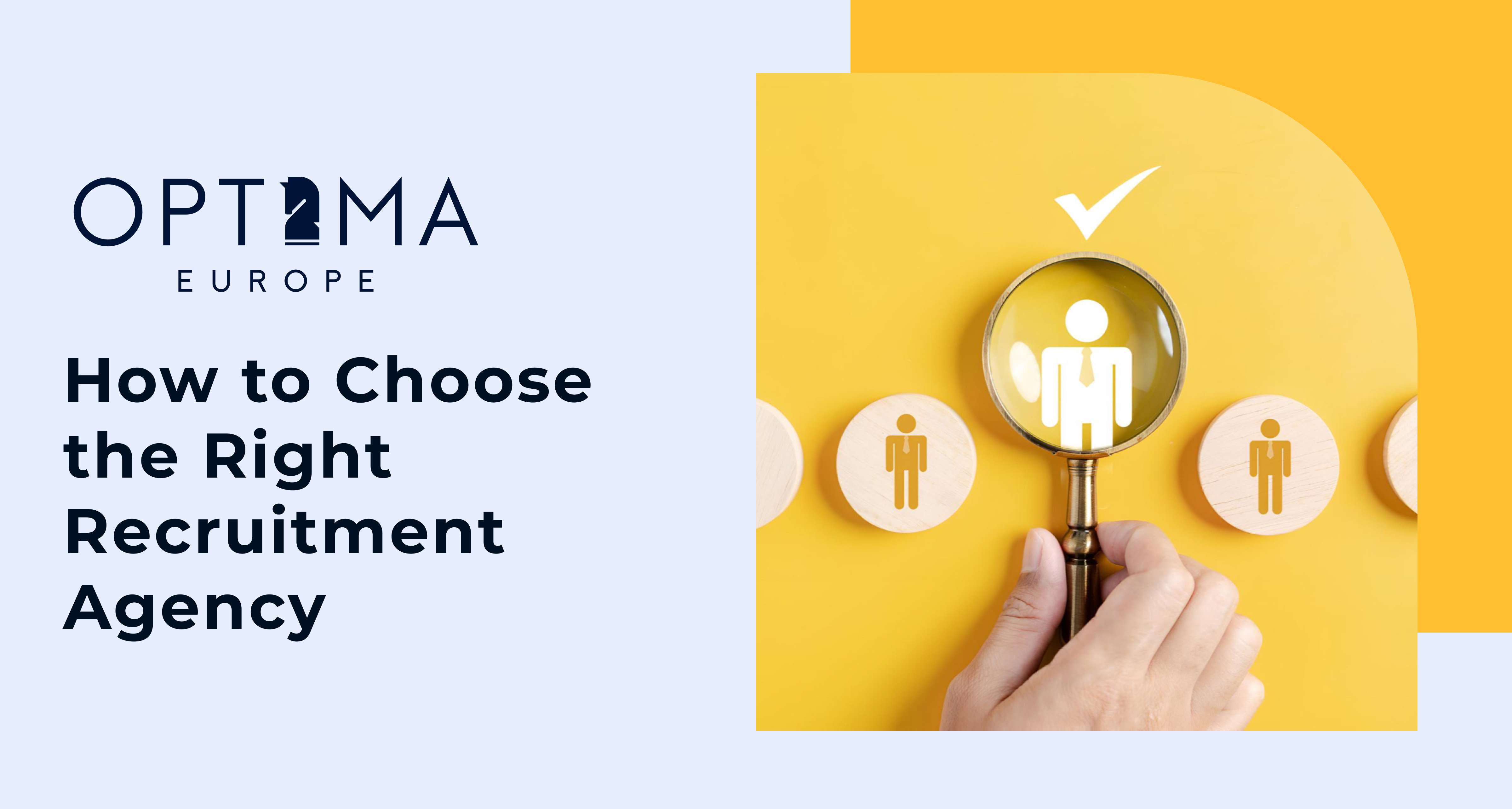
How to Choose the Right Recruitment Agency

Key Takeaways: Selecting Your Ideal Recruitment Partner
- Carefully assess industry-specific expertise and depth of specialisation in your sector
- Thoroughly review the agency's historical performance, client testimonials, and successful placement case studies
- Evaluate communication style, responsiveness, and transparency throughout the selection process
- Understand various fee structures and determine the overall value proposition beyond cost
- Examine candidate sourcing methods and screening processes to ensure quality matches
- Consider how the agency evaluates cultural fit and soft skills alongside technical qualifications
- Assess the agency's use of technology and innovative approaches to talent acquisition
Introduction: The Importance of Choosing the Right Recruitment Partner
Selecting the appropriate recruitment agency can significantly accelerate your hiring process, reduce time-to-fill metrics, and improve workforce quality across all organisational levels. The right agency serves as an extension of your HR team, understanding your company culture and specific needs with precision and expertise.
- Strategic partnerships speed up hiring whilst improving candidate quality
- Specialised agencies focus on specific industries, roles, and regions
- Modern recruitment goes beyond matching CVs to job descriptions
- Right agency alignment impacts organisational success and team dynamics
Whether seeking executive talent or specialised professionals in the digital sector, understanding different agency types and specialisations enables informed decisions aligning with hiring goals.
Understanding Different Types of Recruitment Agencies
Different agency types offer distinct advantages depending on your specific requirements, timeline, and position level. Making this distinction early saves considerable time and resources by focusing on the most appropriate recruitment partners.
Executive Search Firms
Executive search firms specialise in senior-level positions using thorough, consultative approaches with retained payment structures ensuring complete dedication to critical leadership searches.
- Retained basis operations: Payment regardless of placement ensures dedicated resources
- Comprehensive methodology: Systematic identification and vetting for leadership positions
- Industry networks: Extensive connections with high-performing executives
- Cultural assessment: Understanding organisational fit alongside technical capabilities
These firms understand that Business Critical Roles (BCRs) are organisational linchpins, maintaining relationships with executives who may consider strategic career moves despite not actively seeking opportunities.
Industry-Specific Recruitment Agencies
Sector-focused agencies offer specialised knowledge enabling better technical requirement understanding and industry trend awareness for more effective qualified candidate identification.
- Professional backgrounds: Recruiters with insider perspectives on sector requirements
- Technical expertise: Understanding of certifications and experience that matter
- Industry engagement: Conference attendance and professional association participation
- Trend monitoring: Current and future talent needs assessment
Industry-specific agencies maintain current knowledge of the latest essential IT skills and sector requirements, helping organisations find candidates with relevant technical expertise.
HR Consulting Firms
Comprehensive service providers offer holistic solutions beyond recruitment, including HR strategy, talent management, and organisational development with strategic long-term focus.
- Strategic perspective: Broader organisational structure and objective consideration
- Comprehensive services: HR strategy, talent management, organisational development
- Transition management: Complex talent change navigation and succession planning
- Long-term partnerships: Sustained support through organisational evolution
HR consulting firms provide comprehensive talent acquisition strategies and may offer Corporate Outplacement services for employees transitioning due to redundancies or reorganisation.
Key Factors to Consider When Selecting a Recruitment Agency
Industry Expertise and Specialisation
Agencies with specific industry experience possess better insights into required skills and qualified candidate locations. Specialised knowledge enables effective technical competency evaluation and probing questions revealing true expertise.
- Sector understanding: Industry terminology, qualifications, and market trends
- Technical evaluation: Competency assessment beyond surface-level familiarity
- Deep connections: Access to active and passive candidate networks
- Market intelligence: Salary benchmarks and competitive landscape insights
Specialised agencies provide detailed Market Reports showcasing industry knowledge and informing both current hiring and longer-term talent strategy decisions.
Track Record and Reputation
Research success rates, client testimonials, and case studies demonstrating proven histories of long-term placements making significant organisational contributions.
- Historical performance: Industry-specific track record and comparable position success
- Client references: Testimonials and platform reviews indicating reliability
- Challenge navigation: Performance during difficult searches and tight timelines
- Long-term results: Candidate retention and advancement outcomes
Examine case studies demonstrating industry delivery capabilities and client testimonials revealing true capabilities during challenging situations.
Recruitment Process and Methodology
Quality agencies employ robust processes extending beyond keyword matching, with multi-stage evaluations including screening, competency interviews, skills assessments, and comprehensive reference checking.
- Comprehensive screening: Technical requirements and cultural fit evaluation
- Multi-stage process: Thorough assessment from initial contact to final placement
- Technology integration: AI-powered tools with human oversight for quality
- Continuous improvement: Methodology refinement based on outcomes
Modern methodologies incorporate AI-powered screening tools whilst maintaining human oversight for quality assessment and cultural alignment evaluation.
Communication Style and Responsiveness
Agency communication quality reflects recruitment handling throughout the process, requiring clear, consistent interaction and thoughtful questioning about business objectives and requirements.
- Initial assessment: Thoughtful questioning about objectives and team dynamics
- Regular updates: Consistent communication and accessibility throughout process
- Transparency: Open discussion of challenges and strategy adjustments
- Partnership approach: Collaborative problem-solving and responsive service
Excellence requires establishing partnerships with regular updates, accessibility, and proactive strategy suggestions rather than silence when difficulties arise.
Understanding Fee Structures and Value Proposition
Different fee models require evaluation in context of overall value including candidate quality, time savings, and potential business impact of exceptional hires. Cost considerations must balance budget requirements with strategic value delivery.
Common Fee Structures
- Contingency Fees: Payment upon successful placement (15-30% of first-year salary) common for mid-level positions
- Retained Search: Upfront fees with milestone payments (typically 1/3 structure) for dedicated resources
- Fixed Fee: Predetermined amounts for multiple positions or budget predictability
- Hourly Rates: Time-based charging for specific process components or specialised services
Premium agencies offer extended guarantees and replacement periods whilst providing additional value through market insights and HR consulting services.
Evaluating a Recruitment Agency's Talent Acquisition Strategies
Effective agencies employ multiple sourcing strategies accessing both active job seekers and passive candidates through sophisticated methodologies. Understanding specific sourcing approaches provides insights into accessing diverse talent pools effectively.
Candidate Sourcing Methods
- Active databases: Pre-screened candidates through ongoing relationship management
- Passive candidate targeting: Headhunting, social media intelligence, professional network mapping
- Industry networking: Referrals from candidates, clients, and professional sector contacts
- Digital platform leverage: Paid advertising and organic content for talent attraction
- Event participation: Professional associations and specialised forums attendance
- Strategic pipelining: Competitor mapping and future needs anticipation
Innovative recruiters consider non-traditional career paths recognising unique perspectives and adaptability valuable in rapidly changing business environments.
Screening and Assessment Processes
Rigorous screening ensures candidates meet technical requirements and cultural fit through sophisticated methodologies differentiating premium agencies and directly impacting candidate quality.
- Skills assessment: Technical competency evaluation and behavioural interviewing
- Cultural alignment: Values-based assessment and scenario-based questioning
- Reference verification: Comprehensive background checking and performance validation
- Advanced evaluation: Situational judgment tests and structured role-playing exercises
Elite agencies evaluate both technical skills and soft skills like emotional intelligence critical for executive success and team integration.
The Importance of Cultural Fit in Recruitment
Cultural alignment significantly impacts employee satisfaction, productivity, and retention with research showing higher engagement levels and longer tenure for well-aligned employees. Elite agencies invest time understanding organisational values and team dynamics.
- Values alignment: Understanding company culture and working style requirements
- Team integration: Assessment of collaboration and communication preferences
- Long-term success: Prediction of sustained performance and organisational contribution
- Diversity consideration: Balancing cultural fit with innovative perspectives
Quality agencies employ structured cultural assessment methodologies whilst focusing on potential over perfection often leads to more diverse and innovative teams.
Technology and Innovation in Recruitment
Modern agencies leverage technology for improved efficiency and effectiveness, with strategic application dramatically improving both speed and quality. Technology enables recruiters to focus human expertise on critical assessment and consultation aspects.
- AI-powered screening: Efficient candidate pool processing with human oversight
- Data analytics: Pattern identification and insight generation beyond manual processes
- Advanced platforms: Applicant tracking and candidate relationship management systems
- Predictive tools: Analytics for identifying success patterns and potential matches
Forward-thinking agencies understand essential IT skills requirements whilst implementing sophisticated technology for enhanced recruitment effectiveness.
Questions to Ask When Interviewing Recruitment Agencies
Prepare comprehensive questions to assess capabilities, processes, and alignment with specific needs. Responses provide valuable insights into recruitment challenge approaches and methodology alignment with expectations.
- Industry experience depth: Specific examples of similar roles and current industry challenge understanding
- Sourcing strategies: Detailed methodologies for passive candidate recruitment and hidden talent access
- Timeline expectations: Process timelines and challenging search management approaches
- Cultural fit assessment: Structured approaches beyond general impressions or intuition
- Fee structure clarity: Complete cost breakdown and replacement policy understanding
- Client references: Similar client testimonials and performance case studies
- Industry engagement: Methods for staying current with trends and skill requirements
- Performance metrics: Success measurement methods and quality standards
Quality agencies demonstrate transparency about processes, experience, and results whilst providing clear answers and value proposition explanations.
Making the Final Decision
Evaluate both tangible and intangible aspects after researching potential agencies. The right recruitment partner should feel like a team extension with genuine business objective understanding and talent requirement comprehension.
- Requirement alignment: Understanding of business context, growth objectives, and success attributes
- Chemistry and trust: Comfortable working relationship foundation for sensitive information sharing
- Value proposition: Total package evaluation including time savings and exceptional hire impact
- Adaptability: Flexibility for changing needs without compromising quality or responsiveness
- Partnership potential: Long-term support capability for organisational growth and evolution
- Diversity commitment: Approach to building diverse candidate pools for innovation
- Post-placement support: Assistance during critical onboarding and transition periods
Conclusion
Choosing the right recruitment agency significantly impacts organisational success through improved hiring outcomes, reduced time-to-fill metrics, and enhanced performance. Careful evaluation based on expertise, track record, processes, and cultural alignment enables finding partners who attract and retain top talent effectively.
The best partnerships are built on clear communication, mutual understanding, and shared commitment to finding right talent for organisational success. Whether seeking executive talent, digital specialists, or comprehensive HR consulting services, invest time in finding agencies that understand your needs and deliver quality candidates contributing to growth and success.



.webp)










.webp)





